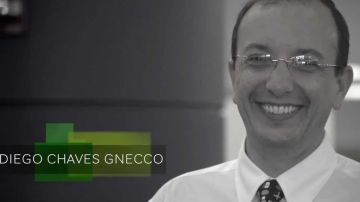Dr. Diego Chaves-Gnecco a Community Profile: Salud Para Niños
Salud Para Niños The Pittsburgh Latino population is one of the smallest in the country, but it’s quickly growing

Photo: Courtesy of Salud Para Niños
Salud Para Niños
The Pittsburgh Latino population is one of the smallest in the country, but it’s quickly growing. Between 2013 and 2014 the Pittsburgh Latino population grew by 4.2 percent, much higher than the national growth rate among Latino which is 2.1 percent. For an area that has experienced population loss for so long, this is welcome growth. However, there is much catching up to do in terms of building a social infrastructure that can accommodate a young population that is both multilingual and multicultural.
Dr. Diego Chaves-Gnecco MD, MPH, FAAP
That is where Salud Para Niños comes in, they are a trilingual (English, Spanish and Portuguese) pediatric clinic located in Pittsburgh, PA. It was founded in 2002 by Dr. Diego Chaves-Gnecco MD, MPH, FAAP. Dr. Diego (as he is commonly called by the community) is a Developmental-Behavioral Pediatrician, Assistant Professor at the University of Pittsburgh School of Medicine, and the Founder / Director of the program SALUD PARA NIÑOS. In 1998, Dr. Diego came to Pittsburgh after completing his medical education and residency in Colombia, as a Visiting Instructor at the University of Pittsburgh School of Medicine, Center for Clinical Pharmacology where he worked until 2002. He then started his residency in pediatrics at Children’s Hospital of Pittsburgh of UPMC and joined its Community Oriented Residency Education (CORE) program, an area of concentration in the pediatric training program that aims to train leaders in community health and child advocacy.
During his first years in Pittsburgh Dr. Diego observed a total lack of linguistic and culturally competent pediatric services for the growing Latino population. As part of his CORE training, Dr. Diego created the First Pediatric Bilingual-Bicultural Clinic in Southwestern Pennsylvania. Since its creation, this clinic has expanded into the program Salud Para Niños, providing competent primary care for Latino children and families. The clinic is complemented with activities oriented toward prevention and empowering the community about its own health.
The vision on which Salud Para Niños is built is that all children grow up to become healthy, educated, and contributing members of society. The goals of the clinic are to:
1) Address all barriers to healthcare access, 2) Ensure all children have a pediatrician, and 3) Reduce all health disparities. Activities of Salud Para Niños include weekly clinics in Oakland at the Primary Care Center at Children’s Hospital of Pittsburgh of UPMC, a monthly free clinic at the Ronald McDonald Care Mobile and at the Birmingham Clinic, participation in the organization of the community fairs, and translation of health prevention materials into Spanish.
The clinic also focuses on preventative care and addresses barriers to education. This includes targeting obesity by hosting free soccer events, open to all, where professional soccer players play alongside families as a way to get people moving. Hosting a once a year “Latino Car Seat Check Day”, where families can bring their car and car seat in order to ensure the seats are installed correctly and are the correct size for the child. Promoting literacy by giving each patient an age appropriate free bilingual book each time they come in for a checkup supports the learning of English as a Second Language. To help fulfill their vision that every child receive a post-high school education, the clinic has worked with the The Pittsburgh Promise to translate program materials with the goal to raise awareness of this available college scholarship in the Pittsburgh Latino community.
When asked about the outcomes of his work, Dr. Diego tells the story of a Latino family that was involved in a serious car accident but walked away unharmed because they had had their car seat checked by the clinic and the parents were wearing seatbelts. Over the years he has had the pleasure of not only attending graduations but also becoming the pediatrician for the families of his former patients. He cites statistics that show the Latino pediatric population is better served in Pittsburg when compared with other Latino pediatric populations in other parts of the United States.
Dr. Diego credits the dedication of volunteers and community partnerships with contributing their time and energy to making the clinic so successful. He is proud about the work they have done since 2002 and looks forward to the future where they continue to provide quality care to Latino families in the Pittsburgh region. He asks of the community to continue to support the clinic, stating that the support of the community is the heartbeat of the clinic.
For more information on Salud Para Niños you can visit their website.

















